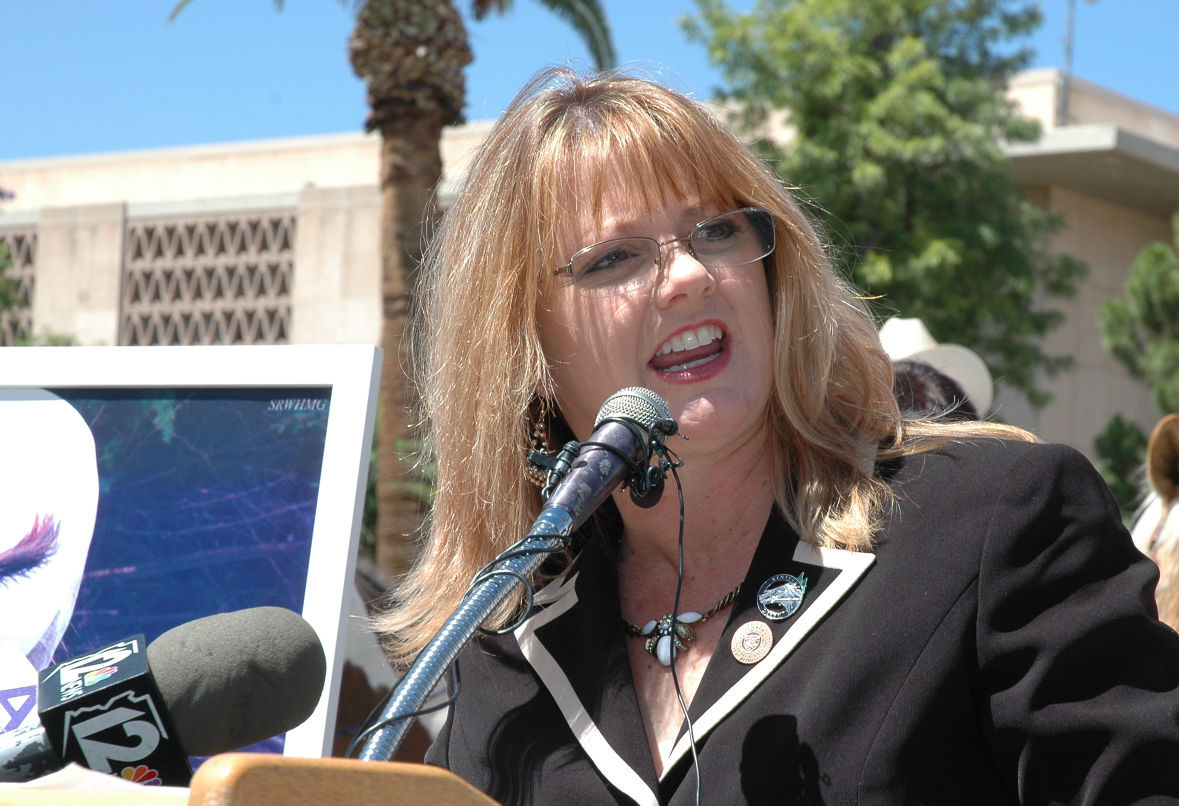PHOENIX — Lawmakers sent a measure to Gov. Doug Ducey that would preclude the use of taxpayer dollars to train public employees about race, ethnicity and sex discrimination if blame or judgment are mentioned.
The 16-14 party-line vote Thursday in the Republican-controlled Senate on the bill — which never has had a public hearing — followed a similar party-line vote earlier this month in the House.
Supporters said state dollars should not be used to tell people they are to blame for racism.
Democrats countered that the kind of training this measure seeks to preclude is necessary for people to understand the history of discrimination in the United States in order to overcome it.
"These are uncomfortable conversations," said Sen. Martin Quezada, D-Glendale. "They aren't supposed to make you feel good. That's the point of these conversations."
Sen. Kelly Townsend, R-Mesa, said she understands the goals of such training. "That sounds good, it makes a lot of sense and we should be together,'' she said in response to Quezada's comments.
But Townsend said the measure, Senate Bill 1074, is designed to preclude training, orientation or therapy "that presents any form of blame or judgment on the basis of race, ethnicity or sex."
It would specifically define "blame or judgment" to include things like saying one race, ethnic group or sex is "inherently morally or intellectually superior to another race, ethnic group or sex.'' Also prohibited would be any training that says an individual, by virtue of that person's race, ethnicity or sex, "is inherently racist, sexist or oppressive, whether consciously or unconsciously.''
SB 1074 is designed to address a concept that has been called "critical race theory.'' In essence, the theory suggests racism is not solely a matter of individual actions but is in some ways built into society through actions like red-lining, which denied homes or loans to minorities, and other segregationist policies.
The concept also has become a political lightning rod for Republicans to assail.
Rep. Jake Hoffman, a Queen Creek Republican, used a procedural maneuver earlier this month in the House to attach this language to another bill, all without the opportunity for the public to comment.
He said the teaching is based on a premise about institutional racism that he does not believe exists.
"America is not racist,'' Hoffman said during the earlier House debate. He said that, going back as far as the Civil War, there is a history of "stomping out racism" wherever it exists.
"This nation is accepting and diverse and loving,'' Hoffman continued. "And sadly the trend of teaching this hateful, racist and bigoted revision of the story of America has reached a fever pitch amongst the activist community on the left that seek to denigrate and demean nearly every American citizen. And it must be addressed."
Quezada, however, said Thursday the goal of the training is to have conversations about the history of America — and not just through a single lens — as a first step toward fixing problems that still exist today.
He said the majority needs to understand the differences that minorities face "from the day we are born when the doctor doesn't look like us, to the time we are going to school and our teacher doesn't look like us, to the time we go and apply for a job and the person interviewing us doesn't look like us and doesn't understand us, to the time we become elected to the Senate and our colleagues don't all look like us and don't all understand us."
This bill is a step backward, Quezada said.
Townsend, however, said she cannot accept the idea of using public funds to teach that any individual is inherently racist, sexist or oppressive based on that person's race, sex or ethnicity.
"Do we want to teach that a race is inherently bad, oppressive, sexist, racist, because of their skin?'' she asked.
Sen. Sally Ann Gonzales, D-Tucson, said avoiding those conversations ignores the realities that many people face in government, in schools and in employment.
"We cannot get rid of racism in this country unless we first acknowledge it, talk about it and come up with solutions to get rid of it," Gonzales said. She said experiences in this country in the past year, including with police "and people of color getting shot,"' underline that the problem remains.
"But this is what we, people of color, have faced,'' she said, saying that for her, it's personal.
"All my life (I) have been discriminated against, have been called names just because of the color of my skin and how I look, since I went to school, since I started kindergarten,'' Gonzales said.
She said state leaders should be working to get rid of racism, even if the effort involves the use of taxpayer money.
Sen. Christine Marsh, D-Phoenix, said there's nothing wrong with having uncomfortable conversations about history. She said one thing the legislation seeks to avoid is that anyone should feel "discomfort, guilt, anguish or any other form of psychological distress because of the individual's race, ethnicity or sex.''
"I want to point out how easy it is for an individual to feel some level of distress,'' Marsh said, telling colleagues how her maternal grandfather fought in World War II for the Germans.
"It makes me uncomfortable when we talk about World War II, when we talk about the Holocaust,'' she said, saying that while her grandfather was not a Nazi, he did fight for that cause.
"That, to me, is deeply discomforting,'' Marsh said, saying that any legislation to keep people from having such conversations as part of training is "really chilling.''
Former Star reporter Doug Kreutz made many videos showing off the Tucson area's lovely outdoors. Here are some that will help you soothe your soul.





